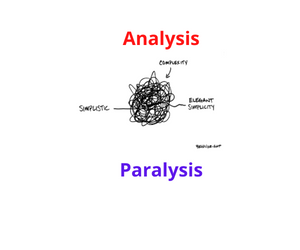What the banks need to learn from Uber. Irony, frustration and a suggestion are the ingredients for this week’s post. Uber, the upstart disrupter of taxi and limousine services, is the inspiration.
Irony, because I recently read how a Goldman Sachs executive had moved over to Uber and worked out a whole new way to help Uber drivers; Uber is helping drivers and want-to-be drivers organise financing for new cars. Totally for free, with the rationale being that getting the drivers on the road in new cars will generate business. Smart. See: Uber banks on world domination, Fortune, September 18th 2014. Financial services, the old economy, helping the new economy.
Frustration, because recently I have experienced poor and great customer service and am frustrated by the size of the gulf between the two. I will be voting with my wallet; avoiding the poor organisation and favouring the good, as well as telling lots of people about them both.
The superb. Uber. I use Uber quite a bit when on the road. I am a new convert and have used them in Moscow, London, New York and Johannesburg. Maybe in total I have spent $500 with them. Yes, they are easy to use and the idea of having an emailed receipt is really appealing. Recently I used the service in London to move six people from Canary Wharf to the O2 in Greenwich; the driver did not notice I had given in a bad destination and when we had sorted that made a meal of the route and the drop off. As ever, as soon as the ride was complete, a request appeared on my smart phone to rate him. “3 starts out of 5,” I thought. The app immediately prompted me for some feedback, so I typed a few words. Inside of two hours, I had an email apology from client service and a 25% refund on a 20 quid fare. Inside of two hours. In New York, I found myself in Times Square in need of a car. 1 minute for a car said the app, so I put in the request. Minutes later the car was turning away from us and getting stuck in the one way system. I cancelled as the wait had extended to 8 minutes plus. Uber sent me a bill for $10 as I had waited a long time to cancel. I complained. In under one hour, I had a reply and a refund. I then shared the idea that maybe their map was measuring “as the crow flies”, which would give wrong readings on timings in a serious one way system. Two quick emails from me; problem solved in less than one hour.
The appalling. I have a MasterCard from one of the local Swiss supermarket chains, Coop. Although it costs me nothing, I use it a lot and travel a lot. I would estimate my annual spend as at least $50’000. Given a maximum limit of 10’000 Swiss francs, I’d guess my wife and I are in the 10% or better of clients. So maybe 100x what I spend with Uber. Recently I had some suspicious transactions on my wife’s card. I called up, in the midst of a hectic travel programme, and after waiting a long time, was told that I had to use the Swisscard online form and send in the form by post, yes post as in snail mail. I asked for the card to be blocked and tried in vain to be able to send an email. “Nein, ve he rules and ve must follow ze rules”. I sent an email and a form. I got a lovely paper letter back, signed by two minions that told me they had my enquiry. What a waste. They sent new cards, for me and my wife and had to change the store card number. Do not ask! But, they goofed and sent a new card for her with the old number, which I did not notice until I went to check the statement and found more fraudulent bookings. I called, had to wait for a long time again and was then finally called back by the fraud unit, who apparently could not use e-mail. They told me they would not reverse the charges until I could prove it was not me. Something about global MasterCard procedures. After some argument, they agreed to reverse some of the charges. Now we have another card cancellation. They may just be able to communicate by e-mail. Every other card service I have used in the world will take a suspicious activity report by phone, apply a credit and then sort things out. Not the jobsworths at Swisscard, who are simply hiding behind the excuse of some MasterCard contract or other. Dealing with the service issues has probably cost me over an hour of my time, some aggravation filling out and mailing in the form, which basically said “see attached” and my credit line is still being used by these bad transactions. So, one hour, sending an email and problem still not solved. Yet I spend 100x more than I do on Uber.
Lessons to be Learned: Uber right, Swisscard wrong. The old economy needs help from the new. Old economy companies are focussed on their procedures and if they have even the slightest perception about client experience and being easy to do business with, it is not at all obvious. Swisscard processes for Coop, Credit Suisse and Amex in Switzerland. They will be losing my business forthwith. Uber; I will be telling all and sundry about, and in my own work will aspire to create user experiences that are as fun and hassle free to deal with.
Wiser heads: Mohamed A. El-Erian is the former CEO and co-CIO of PIMCO. He recently offered an opinion on how Uber is changing things: click here.
Previous Posts: Are available on the 3C Advisory website, click here.
Publications:
The Bankers’ Plumber’s Handbook
How to do Operations in an Investment Bank, or Not! Includes all the Blog Posts, with the benefit of context and detailed explanations of the issues. True stories about where things go wrong in the world of banking. Available in hard copy only.
Cash & Liquidity Management
An up to date view of the latest issues and how BCBS guidance that comes into force from Jan 1 2015 will affect this area of banking. Kindle and hard copy.
Hard Copy via Create Space: Click here
Amazon UK: Click here
Amazon US: Click Here
Thanks for your support and thanks to the numerous contributors.
Share on:



